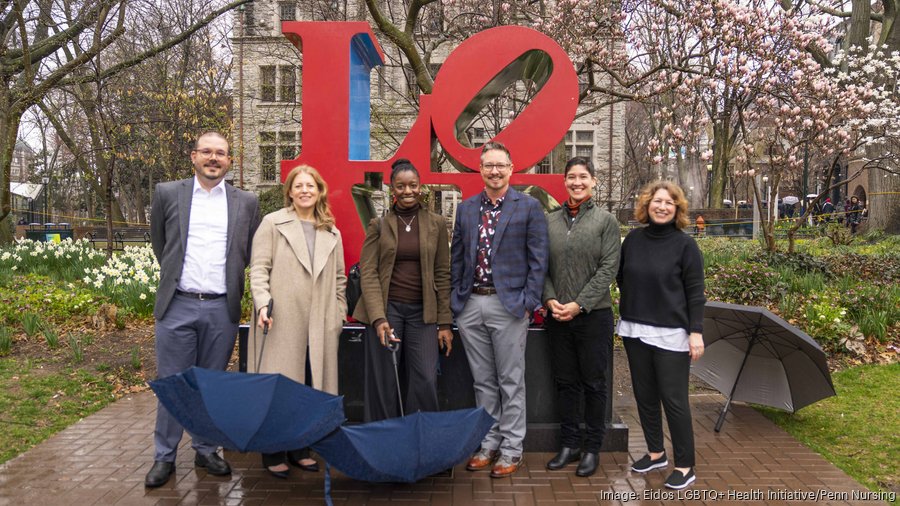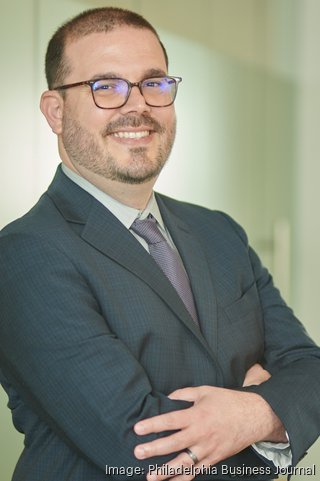Listen to this article 5 min
What happens to science-backed ideas that have practical applications in the real world but no funding or pipeline to scale? That’s a question that niggled at Jose Bauermeister after years in academia and an issue he’s looking to tackle, specifically as it relates to interventions and technologies that will benefit or improve the lives of members of the LGBTQ+ community.
Bauermeister, the Albert M. Greenfield Professor of Human Relations and chair of the Department of Family and Community Health at the University of Pennsylvania, last year helped launch the Eidos LGBTQ+ Health Initiative under Penn Nursing, for which he serves as the director. The center has a five-year plan with the goal of working with startups to improve their concepts in the hopes of bringing them to market or scaling them. The initiative is backed by funding from Penn and in February partnered with venture capital firm Gaingels.
Based in Vermont, Gaingels focuses its investments on startups owned by women, people of color, and those identifying as members of the LGBTQIA+ community. Through the partnership, Gaingels’ portfolio of companies can seek the expertise of Penn researchers through Eidos.
In the last year, Eidos has connected with roughly 50 companies and partnered with about 15. It will launch its first cohort from its partnership with Gaingels in July. About $1 million in funding has been allocated to such endeavors with Gaingels each of the next five years and the goal is to work with six to eight companies a year. “We're hoping to do two [companies] this quarter starting in July and then add as we go,” Bauermeister said. The goal is to do “three- to six-month sprints with them around a suite of services.”
Already Eidos has undertaken some promising projects, including working with the developers of an app called Trace. Trace “seeks to support trans people as they transition,” said Bauermeister, noting it helps them find support, allyship and resources. Transgender activists and allies Aydian Dowling and Elizabeth Rhodes, the founders of Trace, approached Eidos about certain statistics and metrics integral to the app that they needed expertise in.
Bauermeister’s interest in supporting LGBTQ+ startups began much more simply with supporting members of the LGBTQ+ community. That was inspired in part by his own experience as a queer man and was rooted in his early research as an undergraduate student at the University of Puerto Rico. Raised in San Juan, he began working in HIV prevention and sexual health, a theme that’s carried through his work to this day. He had a particular interest in why some communities are more at risk for HIV than others.
“Is it that we really are this laden with all of these social challenges and health behaviors that increase our risk? Or is it that we're not asking the right questions?” he recalled thinking. The latter was where he chose to focus, approaching it from a public health perspective but also through a humanistic lens.
Bauermeister, who went on to earn master’s and doctoral degrees at the University of Michigan, found his way to Penn in 2016. He has received over $40 million in funding as a principal investigator. In his time since, he saw “a growth in companies, startups, Series A, Series B companies who are targeting LGBT communities for their services,” he said. But unlike scientists and academics, many of them weren’t equipped with the time or funding to support further research. “How do we kind of play with the innovation space and the for-profit space while bringing them the expertise of academic science?” he wondered.

That’s a question that Eidos is looking to address.
Much of his work to date has focused on the youth LGBTQ+ population. He uses the Centers for Disease Control guideline, which spans individuals ages 15 to 29. That particular segment has the “highest potential for HIV acquisition,” he said.
More than HIV prevention and mitigation, Bauermeister hopes that technology can be applied to that population as it navigates what it means to become an adult.
LGBTQ+ individuals face higher health disparities and have poorer mental health, sexual health, school attendance and nutrition.
Bauermeister attributes part of his interest in the technology aspect to growing up when online dating was starting to take root. At the same time, public service announcements about HIV and sexually transmitted infections were blaring an ineffective and simplistic message of “don’t have as much sex,” he said. Part of the goal was to curb HIV transmission.
While still an issue, HIV is now a “manageable chronic disease,” Bauermeister said, so his approach focuses on ensuring individuals have access to care.
One of the initiatives Eidos has undertaken is garnering and disseminating feedback from young LGBTQ+ individuals about HIV testing. They have three pilot programs in Philadelphia, Houston and Atlanta. Individuals are tasked with going to clinics and rating their experiences with HIV testing. They are then able to provide de-identified feedback to agencies to show them what they can do to improve the experience.
Another program Eidos is currently running is a peer mentoring app. Undertaken in partnership with Penn Psychiatry's Center for Innovation in Suicide Prevention for Implementation Science, the app is aimed at suicide prevention. Through the app, individuals are paired with a peer mentor. They can also generate a plan for things like coming out to their family. The app gives them a place to revisit that plan and a support system at the ready should they get to a point of crisis. A 2022 survey by nonprofit the Trevor Project found that 45% of LGBTQ youth “seriously considered attempting suicide in the past year.”
At present, the STARS program, or Supporting Transitions to Adulthood and Reducing Suicide, has six peer mentors and 60 users based in the area. “We're following them over time. There's an ethical responsibility of making sure that we leave folks better than when we found them,” Bauermeister said.
Part of the reason for working with startups through Eidos is to hopefully shorten the window it takes to develop and test interventions. In an academic setting, the current time horizon for testing, development and deployment is about 17 years. “I don't have 17 years to see something get there, particularly when we're talking about technology, and it's constantly evolving,” Bauermeister said.
In addition to his work at Eidos, Bauermeister continues to pursue his own research, particularly in biomedical technology. He is part of the development of a project called SLIP, or synthetic lubrication in prevention, in conjunction with a pair of engineers. Together they created a new condom with a hydrogel material that means it could potentially release a drug or even a lubricant.



